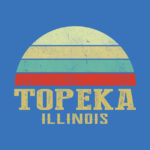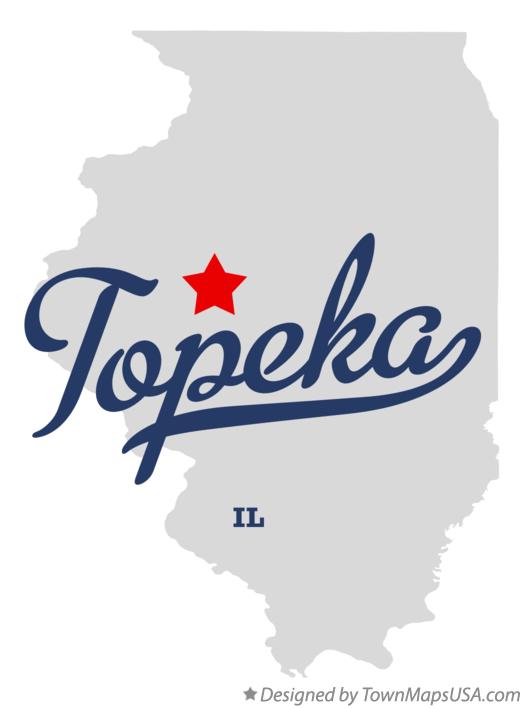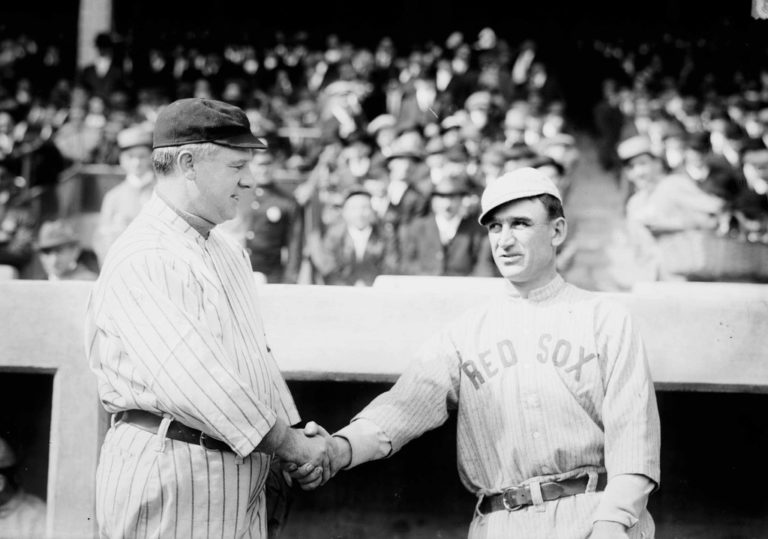Village of Topeka, Illinois History
PART THREE
The village of Topeka is situated about seven miles northeast of the city of Havana, on the P., P. & J. R. R., and is the only village embraced within the limits of Quiver Township. It was surveyed by J.. W. Boggs, for Moses Eckard and Richard Thomas, in 1858. In order to secure the town site, Eckard and Thomas purchased 180 acres of David Beal, and 80 acres were made into a town plat. Forty acres were donated to the railroad company in order to secure the station. The first residence in the village was erected by J. L. Yates, in 1860. He was a blacksmith by trade, and had been plying his trade at McHarry’s Mill, prior to locating in the village.
He was followed, a short time afterward, by E. Y. Nichols, M. D., who built the second residence, and, as a matter of course, was the first resident physician of the place. Harrison Venard was the third resident of the place. Venard was from Ohio, and, in company with a Mr. Rosebrough, who was also from the Buckeye State,opened the first store in the village, near the close of 1860. The firm of Venard & Rosebrough, after a few months, became that of Venard & Musselman. A second store was opened in 1863 or 1864. by Musselman and Aaron Littell. The latter came from New Jersey, but had settled in the county andin the township in 1843. Others came, in from time to time, and other stores and shops were opened, till, at one time, Topeka seemed to be on the highway to prosperity.
But, like many of our Western towns, it attained its growth almost in the dawn of its existence, and, for some years past, it has remained stationary. A grain warehouse was built by Moses Eckard, in 1860. R. W. Stires, of St. Louis, was the first to operate in grain at this point. R. R. Simmonds, of Havana, and Porter Walker have operated in grain at different times. The grain was handled in sacks and shipped on flats. In 1875,Flowers. Allen & Sherman built a very small and cheaply constructed elevator; this has been but little used since its completion. Low & Foster, through W. Eckard, handle the grain at present. About seventy thousand bushels is the average amount handled annually. A neat and substantial passenger depot was erected by the railroad company in 1872, which adds to the appearance of the village. Harrison Venard was the first agent at this point.
W. Eckard is the present gentlemanly agent, and has held the position since The Methodist Episcopal Church, the only house of public worship in the village, was erected in 1865, at a cost of nearly $4,300. Among the early communicants, we find the names of Lewis H. Ringhouse and wife, Mrs. Susan Colwell, David Kepford and wife, Caleb Slade and wife, Phillip Brown, John M. McReynolds and family. Rev. T. J. M. Simmons was the first Pastor of the Church. It has since enjoyed the labors of Revs. J. G. Mitchell, M. Pilcher, G. M. Grays, and others. Rev. L. A. Powell is the present officiating minister. The congregation is in a prosperous condition, and working harmoniously for the upbuilding of the cause. A Sunday school of fine interest is connected with the Church.
The post office at Topeka was established in the latter part of 1860, or early in 1861. Harrison Venard was the first Postmaster. The salary at no time has been princely, and those who have kept it have endured it as a necessary evil rather than from choice. J.F. Ruhl is the present incumbent. A neat frame school building was erected in 1867. It is not grand and imposing in its appearance, but is amply sufficient to accommodate the village urchins.
VILLAGE INCORPORATED
 An act to incorporate the village of Topeka was approved by the Legislature April 10, 1869. Under this act, Samuel R. Yates, Phillip Brown and Robert G. Rider were named as Trustees of the village, their term of office to continue until the first Monday in April, 1870. The Board organized by electing S. R. Yates, President; L. S. Allen, Village Clerk ; Phillip Brown,Police Magistrate, and John Norman, Town Constable. The revenue of the village from license of any kind has been very limited, and whatever public improvements have been made have been paid for by direct taxation imposed upon the citizens, or by voluntary contribution.
An act to incorporate the village of Topeka was approved by the Legislature April 10, 1869. Under this act, Samuel R. Yates, Phillip Brown and Robert G. Rider were named as Trustees of the village, their term of office to continue until the first Monday in April, 1870. The Board organized by electing S. R. Yates, President; L. S. Allen, Village Clerk ; Phillip Brown,Police Magistrate, and John Norman, Town Constable. The revenue of the village from license of any kind has been very limited, and whatever public improvements have been made have been paid for by direct taxation imposed upon the citizens, or by voluntary contribution.
The members composing the present Board are the following : Phillip Brown, D. W. Flowers, W. H. Eckard. The village officers are : Phillip Brown, President ; Theodore Bell, Town Clerk, and Dr. J. W. Downey, Police Justice. The business of the place is comprised in one general store, one drug, grocery and hardware store, one confectionery and two blacksmith-shops. Dr. J. W. Downey is the resi- dent physician, and is a well-read and successful practitioner. The population of Topeka does not exceed one hundred and fifty. Although the village site is the most eligible of any point along the route from Pekin to Havana, yet its proximity to the latter renders it altogether improbable that Topeka will ever be more than the pleasant little village of to-day, drawing its patronage and support from the immediate vicinity in which it is located.
Tomorrow- Biographical Sketches of Quiver Township
Missed Previous Articles?
Bio Sketches of Sherman Township
Bio Sketches of Crane Creek Township
Pennsylvania Township 3 and Teheran
Bio Sketches of Pennsylvania Township
Bio Sketches of Salt Creek Township
Bio Sketches of Forest City Township
Quiver Township 2
Village of Topeka
Bio Sketches of Quiver Township



